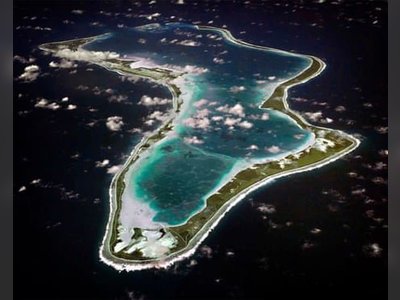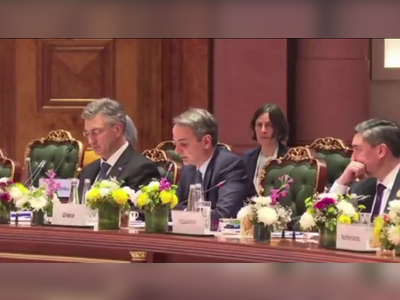France at a Turning Point: Barnier's Administration Confronts Unprecedented No-Confidence Vote
The political impasse in Paris sparks inquiries about governance, resilience, and the future of one of Europe’s key nations.
France has often experienced political turbulence, but the current crisis in Paris appears poised to become a pivotal moment in the nation's modern narrative. Prime Minister Michel Barnier's administration is on the verge of collapse, with a looming no-confidence vote likely leading to his ousting. If this happens, it would be the first time since the early 1960s that a French government has fallen due to such a motion, sending the country into uncharted territory.
The stakes are exceptionally high. The recently established fragile administration is attempting to steer through a divided parliament without a clear majority. Barnier's budget proposal—an unpopular combination of tax increases and public spending cuts totaling sixty billion euros—faces staunch opposition from both the far-right National Rally, headed by Marine Le Pen, and the far-left New Popular Front alliance. These unlikely political allies have united against the centrist government, underscoring the extent of France's political division.
Appointed by President Emmanuel Macron after snap elections earlier this year, Barnier has defended the budget as crucial for stabilizing France's finances. "The situation is serious," he told lawmakers on Tuesday. "It is difficult, but the stakes are not insurmountable." Critics, however, argue that the reforms are harsh and unequal, accusing Barnier of burdening ordinary citizens while ignoring systemic inefficiencies.
Le Pen has used this opportunity to position herself as a defender of the French populace, calling the budget "dangerous" and pledging to shield the nation from what she describes as "punitive austerity." However, her alliance with the far-left carries risks. While polls show strong support among her base for opposing the government, more moderate conservatives may see her collaboration with ideological opponents as politically opportunistic.
The ramifications extend beyond France. As a major European Union economy and a key player in the bloc, political instability in France affects the entire continent. President Macron, currently on a diplomatic mission overseas, has cautioned that the vote could worsen an already fragile economic and social climate. European leaders are observing closely, especially as financial markets remain volatile amidst global uncertainties, including the potential return of Donald Trump to the White House.
Domestically, Barnier's potential ousting could have profound effects. France's constitution prohibits new elections before July, potentially leaving the country with a caretaker government to handle critical fiscal and social policies. This provisional arrangement might involve continuing current budget provisions, avoiding immediate economic paralysis but offering little for long-term solutions.
The broader question is whether France's political system can withstand this challenge. The ability of the far-left and far-right to unite against the government highlights the growing polarization within the country's electorate. With trust in political institutions declining, Barnier's failure may further undermine confidence in traditional governance and open the door to more extreme alternatives.
France’s finance minister has warned that the government's removal would "harm the nation" and leave the French citizens to face the consequences. Yet, for many opposition MPs, decisive action is the only way forward. As one leftist lawmaker remarked, "Blocking this budget is, unfortunately, the only constitutional way we have to protect the French people."
The drama unfolding in Paris is more than a leadership crisis—it is a test of France’s identity and resilience. Will the nation’s democratic institutions meet the challenge, or will this moment signify a deeper decline into political dysfunction?
As France faces what some label a "moment of truth," one thing is certain: the decisions made this week will shape the country's trajectory for years to come. Whether through compromise or confrontation, the nation must find a way to reconcile its divisions and reaffirm its commitment to the principles of democracy, accountability, and the common good.
The stakes are exceptionally high. The recently established fragile administration is attempting to steer through a divided parliament without a clear majority. Barnier's budget proposal—an unpopular combination of tax increases and public spending cuts totaling sixty billion euros—faces staunch opposition from both the far-right National Rally, headed by Marine Le Pen, and the far-left New Popular Front alliance. These unlikely political allies have united against the centrist government, underscoring the extent of France's political division.
Appointed by President Emmanuel Macron after snap elections earlier this year, Barnier has defended the budget as crucial for stabilizing France's finances. "The situation is serious," he told lawmakers on Tuesday. "It is difficult, but the stakes are not insurmountable." Critics, however, argue that the reforms are harsh and unequal, accusing Barnier of burdening ordinary citizens while ignoring systemic inefficiencies.
Le Pen has used this opportunity to position herself as a defender of the French populace, calling the budget "dangerous" and pledging to shield the nation from what she describes as "punitive austerity." However, her alliance with the far-left carries risks. While polls show strong support among her base for opposing the government, more moderate conservatives may see her collaboration with ideological opponents as politically opportunistic.
The ramifications extend beyond France. As a major European Union economy and a key player in the bloc, political instability in France affects the entire continent. President Macron, currently on a diplomatic mission overseas, has cautioned that the vote could worsen an already fragile economic and social climate. European leaders are observing closely, especially as financial markets remain volatile amidst global uncertainties, including the potential return of Donald Trump to the White House.
Domestically, Barnier's potential ousting could have profound effects. France's constitution prohibits new elections before July, potentially leaving the country with a caretaker government to handle critical fiscal and social policies. This provisional arrangement might involve continuing current budget provisions, avoiding immediate economic paralysis but offering little for long-term solutions.
The broader question is whether France's political system can withstand this challenge. The ability of the far-left and far-right to unite against the government highlights the growing polarization within the country's electorate. With trust in political institutions declining, Barnier's failure may further undermine confidence in traditional governance and open the door to more extreme alternatives.
France’s finance minister has warned that the government's removal would "harm the nation" and leave the French citizens to face the consequences. Yet, for many opposition MPs, decisive action is the only way forward. As one leftist lawmaker remarked, "Blocking this budget is, unfortunately, the only constitutional way we have to protect the French people."
The drama unfolding in Paris is more than a leadership crisis—it is a test of France’s identity and resilience. Will the nation’s democratic institutions meet the challenge, or will this moment signify a deeper decline into political dysfunction?
As France faces what some label a "moment of truth," one thing is certain: the decisions made this week will shape the country's trajectory for years to come. Whether through compromise or confrontation, the nation must find a way to reconcile its divisions and reaffirm its commitment to the principles of democracy, accountability, and the common good.











